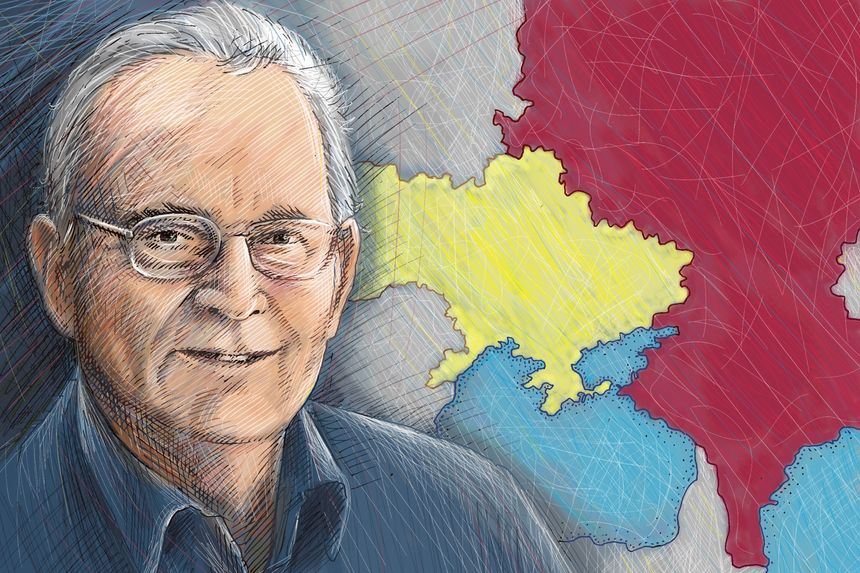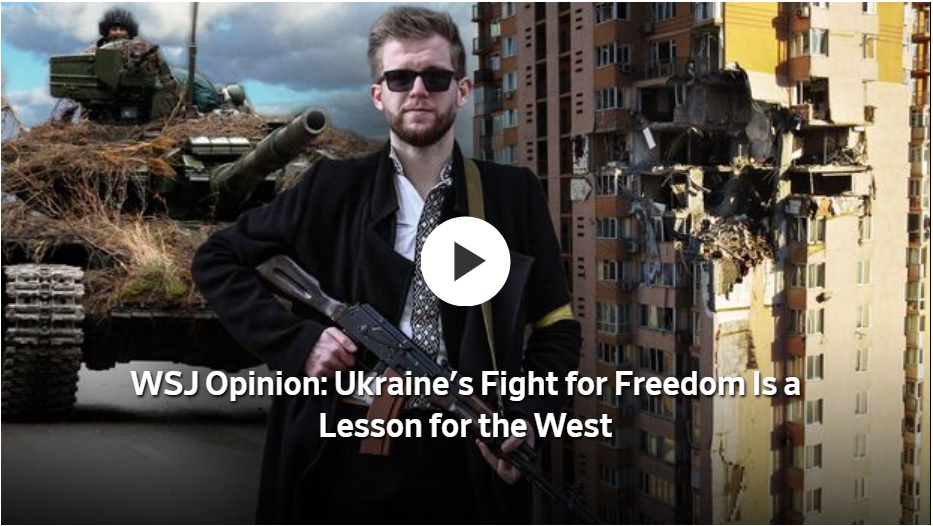Featured Galleries USUBC COLLECTION OF OVER 160 UKRAINE HISTORIC NEWS PHOTOGRAPHS 1918-1997
 Holodomor Posters
Holodomor Posters

THE TWO BLUNDERS THAT CAUSED THE UKRAINE WAR - Part 2
 Robert Service, a leading historian of Russia, says Moscow will win the war but will lose the peace and fail to subjugate Ukraine. How Putin could be deposed.
Robert Service, a leading historian of Russia, says Moscow will win the war but will lose the peace and fail to subjugate Ukraine. How Putin could be deposed.
Op-Ed by Tunku Varadarajan, WSJ, New York, NY, Fri, Mar 4, 2022
“So it’s quite possible,” Mr. Service continues, “that the apparently overawed associates of Putin in the Kremlin could decide that the Russian national interest and their collective interest will best be served by getting rid of Putin.” Yet Mr. Putin is surely aware of the history of Beria, and is accordingly prepared: “He’s very elusive, and very, very edgy. I should imagine his security orders are quite severe.”
The longer the war goes on, the more likely it is that Russia will see protest movements that are hard to contain, Mr. Service says. “Especially if the police themselves have elements in their ranks who sympathize with the people they’re meant to be suppressing.”
There have been frequent uprisings in Russian history, and Mr. Service lists them. “In 1905, they nearly led to revolution. In February 1917, they did.” There were also “very, very powerful” street demonstrations in the early 1930s that shook Stalin; disturbances in the labor camps in the late 1940s, and also at Stalin’s death. “There were whole cities that erupted against the Soviet order in 1962, because of high meat prices, and there were strikes in 1989 among the coal miners, which destabilized Soviet politics.” And in 1991 an attempted coup against Mikhail Gorbachev prompted a demonstration outside Parliament, where future Russian President Boris Yeltsin famously faced down a Soviet tank.
He acknowledges that only twice did opponents succeed in toppling the political establishment, but he says that “if there’s a combination of political disorder on the streets and political unease in the ruling group,” as in 1917 and 1991, these factors could converge to powerful effect: “This is a distant possibility at the moment, but it can’t be ruled out.”
Mr. Service is certain, however, that the Russians will find conquered Ukrainians as difficult to control as free ones. “The Ukrainians have become more nationally conscious over the 20th century, and they’re a proud people who’ve seen what happened to them when they were subjugated by the U.S.S.R.” It is inconceivable that they will accept subjugation again. “They had it in the early 1930s, when millions died under Stalin’s famines. They had it again in the late 1940s, after the war ended. I don’t think they’re going to let history repeat itself.”
The invasion of Ukraine, Mr. Service says, is not a tragedy for Ukraine alone. It’s a tragedy for Russia. “Russian people don’t deserve a ruler like Putin. They’ve not had very much luck with their rulers in the last 150 years. In fact, they’ve had appalling luck.”
Mr. Varadarajan, a Journal contributor, is a fellow at the American Enterprise Institute and at New York University Law School’s Classical Liberal Institute.

Review & Outlook: The war in Ukraine may be intensifying, but Vladimir Putin’s invasion isn’t going to plan as Ukrainians show a too complacent West what it means to fight for freedom. Images: AFP via Getty Images Composite: Mark Kelly











